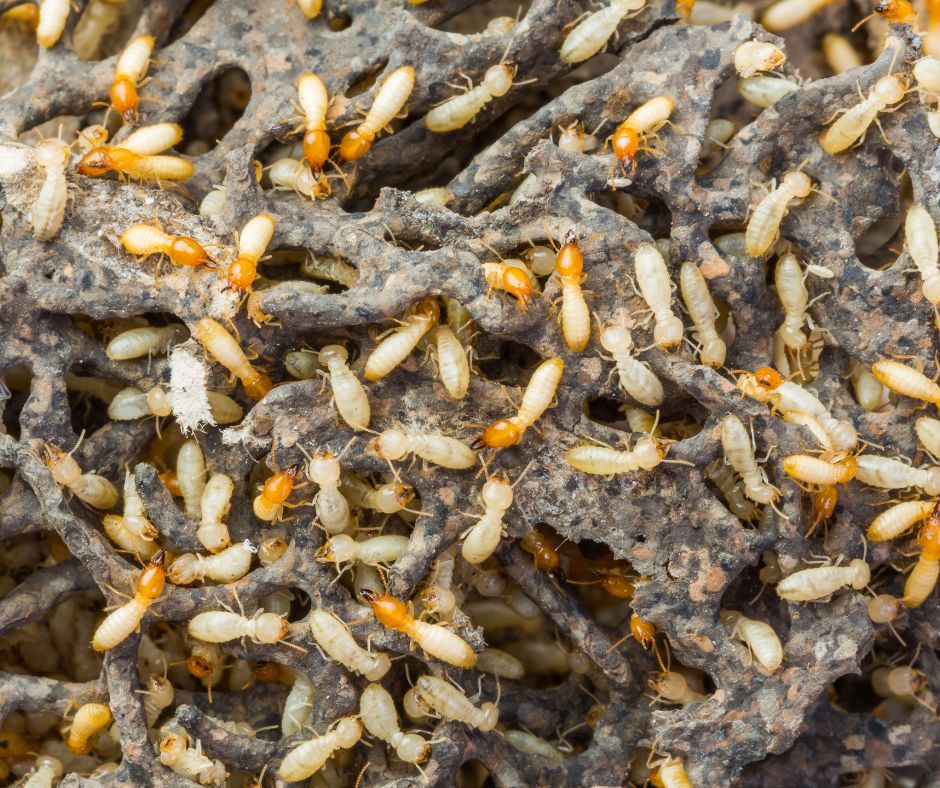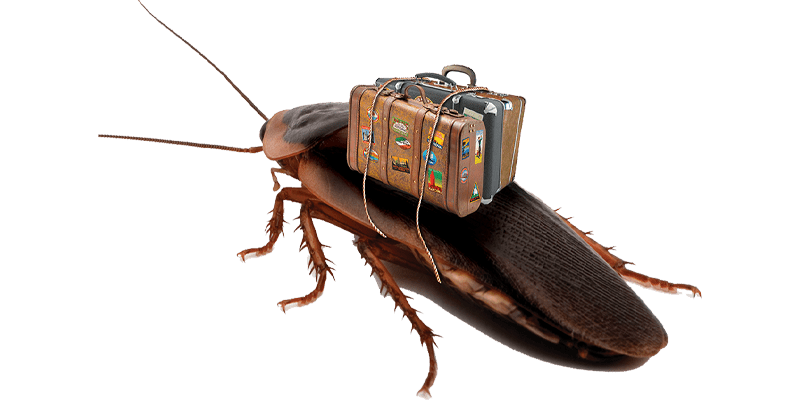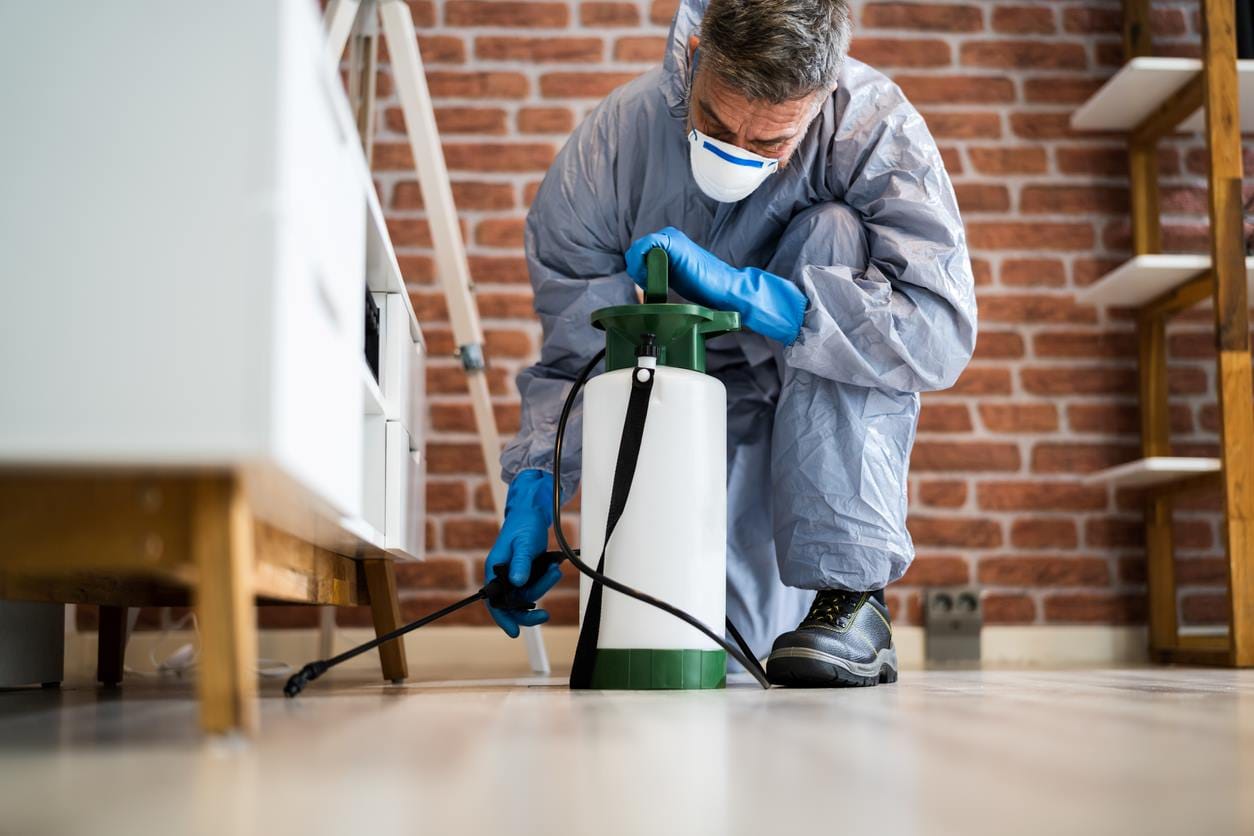How an Exterminator in Port Charlotte Can Protect Your Home from Pests
Find Out About the current Breakthroughs in Bug Control and Exactly How to Carry Out Efficient Treatment Solutions
In recent years, the field of insect control has witnessed substantial advancements, driven by the demand for sustainable and effective treatment solutions. Innovative methods such as Integrated Pest Management (IPM) incorporate eco-friendly techniques with advanced modern technology, improving both effectiveness and ecological responsibility. The assimilation of clever modern technologies and Do it yourself techniques has encouraged individuals to take on insect problems a lot more effectively. As we explore these growths, it comes to be vital to comprehend just how ideal to carry out these techniques in numerous settings to achieve optimal outcomes. The ramifications for insect management methods could be transformative.
Eco-Friendly Parasite Control Options
Recently, the need for eco-friendly parasite control options has surged as house owners and services alike look for sustainable alternatives to typical chemical therapies. This shift is driven by expanding ecological awareness and a need to decrease the health and wellness threats connected with synthetic chemicals.

Green insect control methods include a variety of approaches that focus on using all-natural compounds and practices. Integrated Parasite Monitoring (IPM) is one such method, combining biological, cultural, and mechanical methods to handle pest populaces while lowering dependence on chemicals (Wildlife removal services). This alternative technique emphasizes avoidance through habitat manipulation and the intro of all-natural predators, thereby cultivating a balanced ecological community
Another preferred choice is making use of agricultural pesticides derived from plants, which often tend to be much less dangerous to non-target microorganisms. Products like neem oil and diatomaceous earth have actually obtained grip for their efficiency in regulating insects while positioning very little dangers to human health and the atmosphere.
In addition, exemption strategies, such as sealing entry points and preserving cleanliness, play a crucial function in environmentally friendly pest management. By embracing these sustainable practices, individuals and organizations can effectively take care of bugs while promoting a healthier world for future generations.
Smart Innovation in Insect Administration
Technology is improving the landscape of pest administration, with smart innovation becoming an essential pressure in boosting performance and performance - Wildlife removal services. The combination of Internet of Things (IoT) gadgets, expert system (AI), and information analytics is revolutionizing exactly how bug control professionals come close to problems
Smart catches furnished with sensing units can find insect task in real-time, sending out instant alerts to operators. This permits prompt reactions, lessening damages and lowering the requirement for comprehensive treatments. In addition, AI algorithms evaluate historic data to forecast insect behavior, making it possible for proactive interventions based on ecological problems and invasion patterns.
Drones and computerized automobiles are likewise playing a considerable role in insect monitoring, supplying airborne evaluations of large locations, determining hotspots, and even dispersing targeted treatments. These modern technologies not only enhance procedures yet likewise enhance safety by restricting human exposure to possibly hazardous chemicals.
Furthermore, mobile applications empower consumers to keep track of pest activity and accessibility expert guidance, promoting a joint approach to pest administration. Overall, the adoption of clever innovation is establishing a brand-new standard in pest control, highlighting data-driven choices and lasting methods that eventually profit both specialists and house owners alike.
Integrated Bug Management Approaches
Integrated Pest Monitoring (IPM) utilizes an all natural approach to pest control, integrating various approaches to properly take care of bug populaces while lessening threats to human health and the environment. IPM focuses on understanding the pest life cycle, their all-natural adversaries, and the community in which they grow.
Among the find out here essential elements of IPM is monitoring pest populations with routine inspections and information collection. This enables the recognition of parasite limits, figuring out when intervention is needed. Cultural techniques, such as plant environment, cleanliness, and rotation control, are important in minimizing bug prevalence and advertising plant health.
Mechanical controls, including obstacles and traps, are likewise essential in IPM. These approaches can physically get rid of or deter insects without the use of chemicals. When required, the wise application of chemical controls is used, concentrating on targeted treatments that decrease ecological impact.
Education and learning and partnership amongst stakeholders, consisting of farmers, bug control specialists, and the area, are critical for the successful implementation of IPM approaches. By prioritizing lasting methods, IPM not just addresses pest concerns but also cultivates a much healthier ecological community.
Biological Control Techniques
Numerous biological control methods are progressively identified for their efficiency in taking care of insect populaces while promoting environmental equilibrium. These techniques harness all-natural predators, parasites, and virus to reduce pest numbers without depending on artificial chemicals. The intro of ladybugs can successfully manage aphid populaces, while nematodes target soil-dwelling pest larvae.
Additionally, making use of microbial chemicals, such as Bacillus thuringiensis (Bt), offers an eco-friendly choice for handling caterpillar insects. These products particularly target pest varieties, reducing injury to valuable pests and pollinators. Additionally, conservation biological control highlights boosting environments for natural enemies, such as birds and useful pests, thereby encouraging their presence in farming systems.
Research remains to disclose innovative strategies within this area, such as making use of scents to interrupt pest mating patterns or the growth of biocontrol agents with genetic modification. Carrying out these techniques can bring about sustainable parasite management methods that alleviate the reliance on chemical interventions, ultimately cultivating much healthier communities. As understanding of these methods grows, they are coming to be essential parts of incorporated insect administration (IPM) techniques, providing a balance in between efficient insect control and environmental stewardship.
Do It Yourself Parasite Control Solutions
As home owners seek effective methods to tackle bug concerns, do it yourself bug control browse this site solutions have gotten appeal for their accessibility and cost-effectiveness. These techniques encourage individuals to attend to infestations utilizing readily available materials and methods, typically without the requirement for expert treatment.

Furthermore, preserving proper hygiene and regular examinations can stop bug entry and nesting (Wildlife removal services). Basic methods, such as sealing splits, removing food sources, and decluttering, can substantially reduce pest populaces. Traps, both homemade and readily readily available, can additionally supply efficient solutions for monitoring and managing details bugs like rats or pests

Final Thought
The integration of environmentally friendly insect control alternatives, wise technology, and ingenious monitoring strategies presents a thorough method to effective pest administration. By accepting Integrated Parasite Monitoring (IPM) and utilizing organic control methods, along with do it yourself options, sustainable and accountable parasite control can be accomplished. These improvements not just enhance the performance of parasite management methods yet likewise add to a much healthier atmosphere. Carrying out these strategies fosters a well balanced ecological community while effectively attending to pest populaces.
Green parasite control approaches encompass a cockroach control range of approaches that focus on the usage of all-natural substances and methods. Integrated Insect Management (IPM) is one such approach, incorporating organic, social, and mechanical strategies to handle insect populaces while reducing dependence on chemicals. As recognition of these techniques expands, they are becoming essential components of incorporated parasite administration (IPM) strategies, using an equilibrium in between efficient pest control and environmental stewardship.
The assimilation of green pest control alternatives, wise technology, and innovative management strategies presents a detailed approach to effective parasite monitoring. By welcoming Integrated Insect Management (IPM) and making use of organic control approaches, along with DIY options, liable and sustainable pest control can be accomplished.